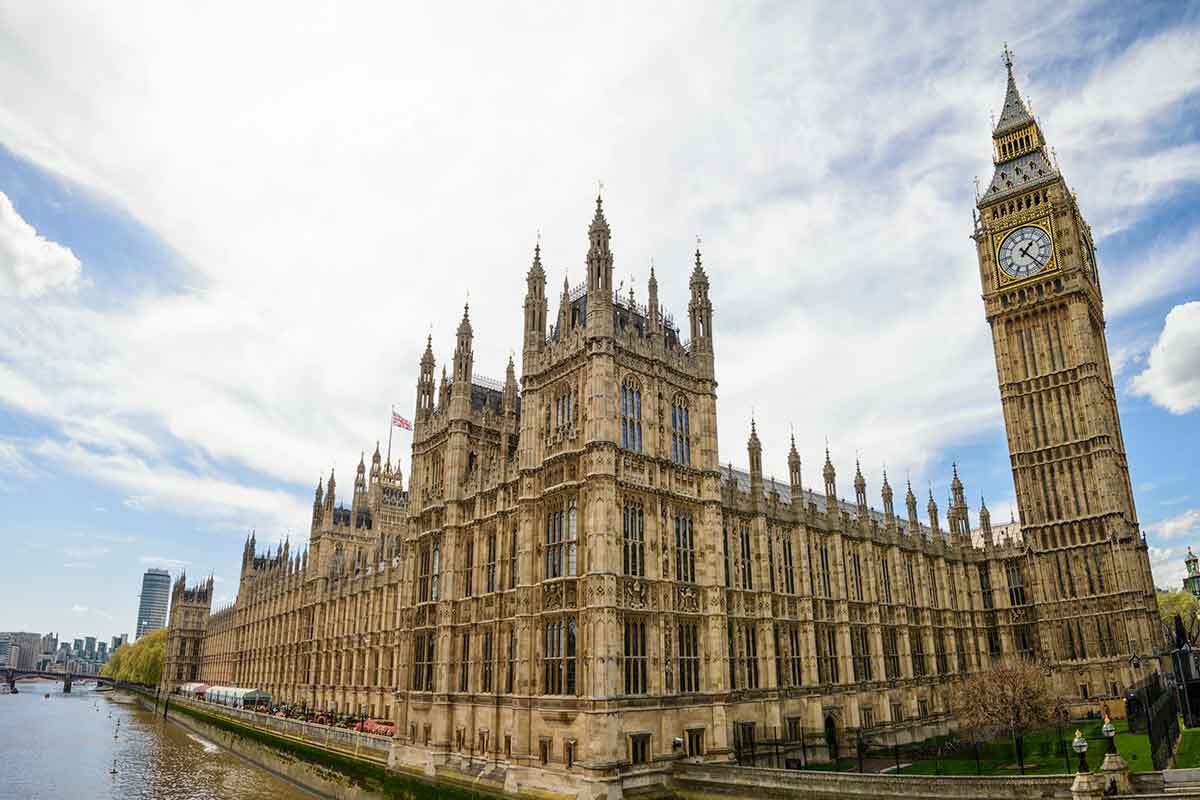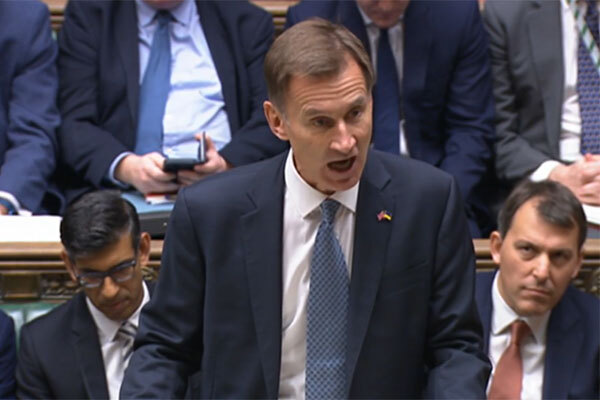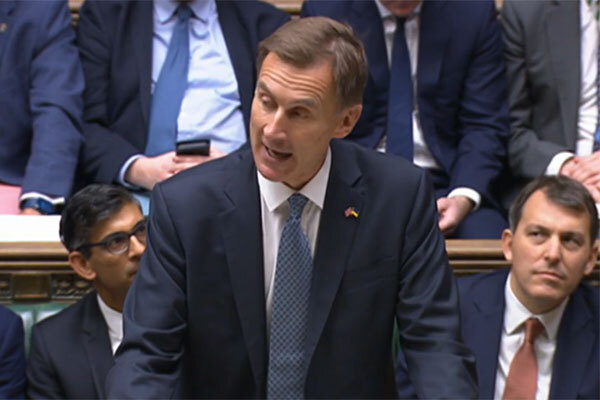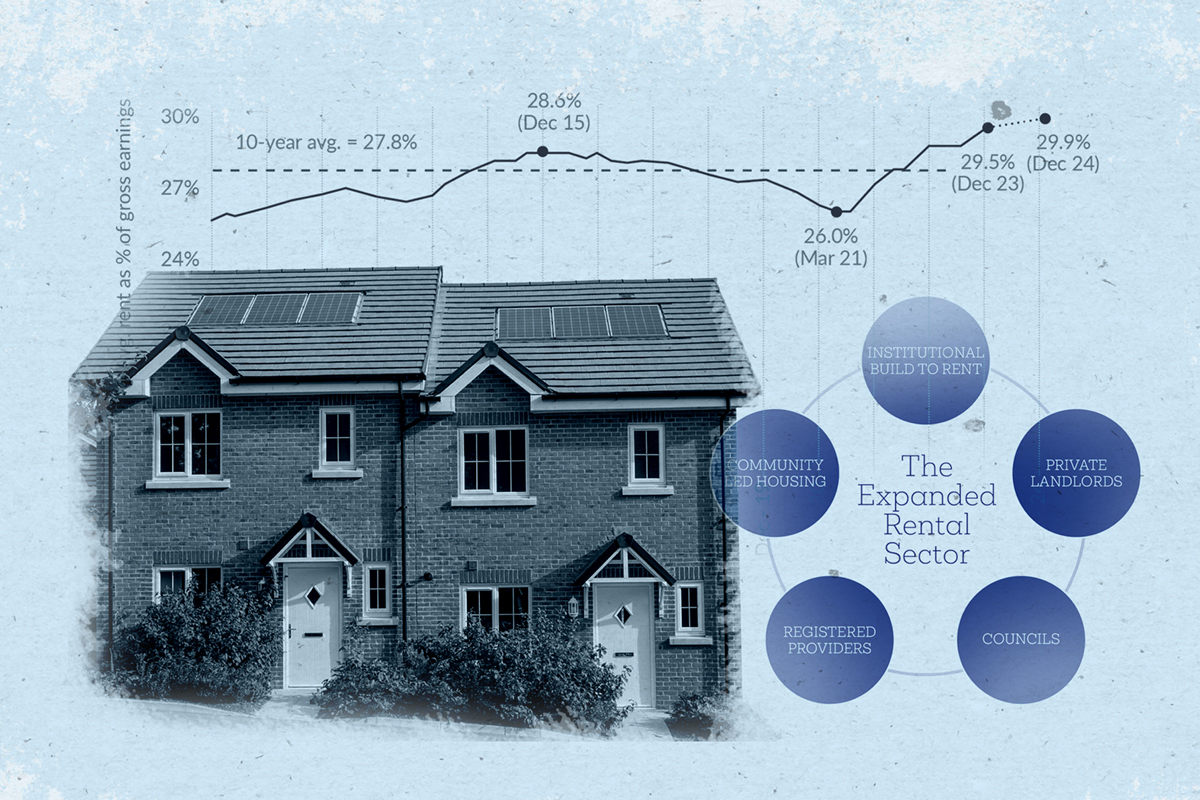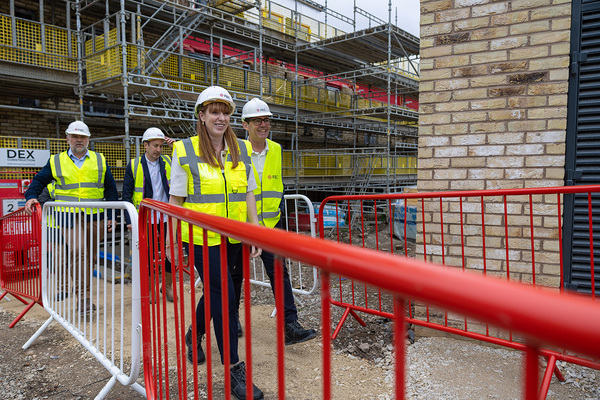You are viewing 1 of your 1 free articles
Autumn Statement 2022: the sector responds to Jeremy Hunt’s housing announcements
Today, the chancellor delivered the Autumn Statement. There was a lot in it for the housing sector to take note of, chiefly the confirmation of a 7% rent cap next year. Here, the sector responds to Jeremy Hunt’s announcements
Kate Henderson, chief executive of the National Housing Federation, said: “Housing associations are deeply aware of the financial pressures facing their residents.
“The sector has made a commitment that no tenant will be evicted because of financial hardship where they are engaging with their housing association. Each housing association also has tailored support in place to help residents who are struggling with the cost of living.
“The National Housing Federation supports the government’s decision to cap social rent increases at 7% in 2023/24. This is rightly well below CPI+1%, the standard formula for rent setting for social housing, while ensuring housing providers can continue to deliver their core services for residents now and into the future.
“We are also very pleased that the government has announced an exemption from the rent cap for supported housing providers, which will ensure the future viability of care and support for some of the most vulnerable people in the country. The overwhelming majority of tenants who use these specialist services will have their rent increase met in full by housing benefits or Universal Credit.
“With the certainty these decisions provide, housing associations representing 80% of shared ownership homes are also committing to cap rent increases for shared owners at 7% in 2023/24, matching the social rent cap.
“We know any additional costs will be difficult for residents. We will continue to push the government for support for people on low incomes. We also urge tenants and shared owners who are struggling with bills to contact their housing associations to find out what support is available.”
Geeta Nanda, chair of the G15 and chief executive of Metropolitan Thames Valley: “We welcome the government’s confirmation that social security and the benefit cap will be uprated with inflation. Seven in 10 of the residents we provide affordable rented homes to rely on this support, and we have called for this measure to be confirmed for many months.
“Setting rent levels for next year means looking carefully at both the challenges people are facing and the pressing need to continue investing in existing homes and building much-needed new affordable homes. With inflation driving up costs facing not-for-profit housing associations, getting this right has been one of the biggest challenges I have seen in more than 30 years of working in housing.
“Confirmation from the government of the 7% ceiling on social rent levels for next year will allow organisations to carefully consider rent-setting decisions in the coming months.”
Matt Downie, chief executive of Crisis: “People across the country will be breathing a sigh of relief to hear the chancellor commit to raise benefits, and the cap on benefits, in line with inflation. This is hugely welcome and will ensure more families are protected from the very worst of the financial pressures they are currently having to bear.
“What this statement doesn’t do, however, is alleviate the mounting strain on 1.9 million private renters who rely on housing benefit to cover their rent. With housing benefit remaining frozen, stuck at levels set in 2018-19, and rents rising at their fastest rate in 16 years, this cut will leave more and more people unable to afford a secure home.
“Abandoning renters during a recession and cost of living crisis is unforgivable. We urge the government to immediately invest in housing benefit so that people have a fighting chance of finding and keeping a home. Doing nothing risks a further surge in homelessness, forcing thousands into misery and destitution.”
Tracy Harrison, chief executive of the Northern Housing Consortium: “The NHC welcomes the chancellor’s decision to uprate benefits in line with rising prices. This will help people through the crisis.
“However, we are very concerned that he intends to freeze Local Housing Allowance [LHA] in cash terms. Our Northern Housing Monitor shows that the proportion of private rentals in the North advertised at rents above the relevant LHA has grown from three-quarters of ads in 2017 to more than four out of five in 2019, to a position where almost nine out of 10 properties advertised for rent are too expensive for someone reliant on LHA. This position is unsustainable and will drive homelessness.
“We have always argued that the long-term solution to the energy crisis is energy efficiency. We therefore welcome the further £6bn investment in energy efficiency from 2025, and we look forward to working with BEIS [the Department for Business, Energy and Industrial Strategy] to ensure that homes across the North benefit from this. It will be important that more detail comes forward soon so that the supply chain has visibility of long-term demand.
“The government’s 7% rent cap for social housing provides certainty, and will help councils and housing associations to balance affordability for tenants as well as continuing their important work to tackle fuel poverty through green home upgrades and provide important services to tenants.”
Elizabeth Froude, chief executive of Platform Housing Group: “The housing sector supports a wide variety of customers on varying income levels, and while the government is announcing a cap of 7%, it is very unlikely that any social landlord would have considered applying the CPI+1% formula rent, as we are too aware of how difficult times are already for our customers.
“Raising benefits by inflation will definitely help to soften the cost inflation of other living costs, but we will still need to support those that still face financial difficulties, as we have been since the start of [the] COVID [pandemic].
“Housing associations are feeling the effects of spiralling cost inflation at a time when the need to increase investment in the thermal efficiency of our homes is vital, having a rent increase which allows some offset of our cost increases and supports our customers is a much-appreciated and sensible decision which will allow a level of ongoing investment to be maintained.”
Richard Petty, head of UK Living at JLL: “Capping rent increases at 7% next April shows the government has struck the right balance and listened to its own consultation.
“Our modelling shows that 7% should mean increases in EUV-SH [Existing Use Value for Social Housing] valuations in all areas of England in 2023. Avoiding significant falls in valuations is vital to underpin secured lending, for the confidence of investors, and for the viability of building more affordable homes.
“But it’s a delicate balance, and rents are only half the picture. We saw yesterday that inflation is higher than expected and is likely to take longer to come down. Registered providers [RPs] of social housing are seeing their costs of repairing and maintaining homes – labour and materials – going up by more than CPI, so their net income is already under a lot of pressure.
“This is what matters for valuations – it’s net income which drives the valuations that support borrowing from banks and bond investors, and it would not take much to tip valuations next year back into the red. Investing in decarbonising and energy efficiency, for example, will have a big impact.
“We also need certainty on what the government’s policy on rents will be beyond 2023 – the long-term has a far greater bearing on valuations than just next year. Lenders and investors in RPs’ bonds need that clarity to give them confidence to make billions of pounds worth of long-term financial commitments to the sector.
“We also need to remember this is a cap, not a fixed increase. Some boards might choose to do less. As a board member myself, I appreciate that all boards will find it hard to strike the right balance between their financial covenants, investment in homes and services, and affordability for their residents.
“So, it’s good news for valuations now, but I’m afraid there is still plenty to worry about.”
Caroline Moore, chief financial officer at Abri: “The government’s decision to cap social housing rents at 7% will protect vulnerable households from an increase in rent set against significantly high inflation, while enable the sector to continue delivering homes and services.
“Times ahead will be difficult for families and for the social housing sector. Our priority remains on supporting our customers through the cost of living crisis and the challenges they are facing now. We urge any of our customers who are struggling to get in touch – we’re here to help.
“Against a difficult economic environment, Abri remains a strong and resilient organisation. Our mission remains the same: we believe everyone has the right to a safe, warm and sustainable home. As well as supporting our customers through financial hardship, we will continue to do what we can, prioritising investment in our existing homes as well as improving the energy efficiency of our homes and build more affordable housing.”
Samantha Grix, partner at Devonshires: “Setting the rent cap at 7% will come as a huge relief to registered providers and prevents a potentially apocalyptic scenario for some. RPs are facing a perfect storm of costs, including fire safety and decarbonisation, so limiting rent increases to 3% or 5% would have been untenable for many.
“However, the higher cap will allow RPs a bit of headroom to ensure their viability and allow them to deliver the much-needed low cost housing they provide to this country.”
Matt Cowen, a senior associate at Winckworth Sherwood: “No doubt there remain tough times ahead for many social housing tenants squeezed by the cost of living crisis, but the introduction of this rent cap will partly mitigate the 11.1% rent increases that would have otherwise taken effect from next April, being September’s CPI rate of 10.1% plus 1%.
“Social housing landlords also face their own financial pressures, particularly in relation to meeting development targets and decarbonisation commitments. They will need to consider how this cap on their main source of income impacts those plans while ensuring, as far as possible, that a reduced income does not lead to less and lower quality housing stock over the medium to long term. This requires careful consideration and, in some cases, will involve RP boards making difficult trade-offs.
“It should also be remembered that the rent cap announced today does not apply to shared ownership rents or private sector rents.”
Sign up for our daily newsletter
Already have an account? Click here to manage your newsletters
